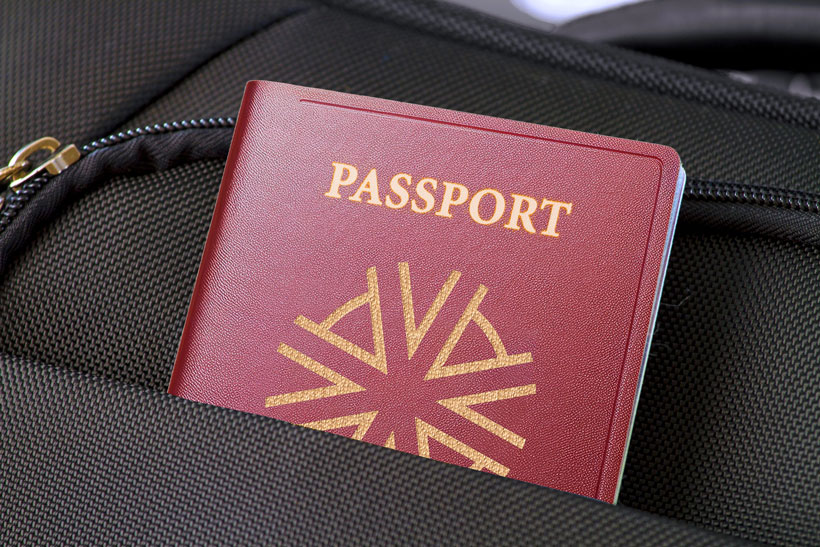For the investment migration industry – Golden Visa and dual citizenship through citizenship by investment programs – 2023 was one of the most eventful years in recent history.
For the first time, investment migration endured a continuation of significant program changes, and growing geopolitical tensions reshaped the citizenship and residency by investment landscape.
The year was most noteworthy for EU Golden Visas and Caribbean citizenship by investment programs. Significant regulation changes, price fluctuations, and process updates all occurred.
However, nearly no program went untouched in some way, and 2024 is now strategically positioned as a bridge year or testing ground for the changes – especially regarding increased investment minimums – as the remaining countries contemplate their next program moves.
In case you missed it, here is every significant program move of 2023 in the world of investment migration.
Greece Golden Visa applies price hike to real estate investments
The EU’s investment migration landscape wasn’t only affected by the changes in Portugal, as the Greek government also applied significant changes to its Golden Visa’s most prominent investment category.
The Greek government decided to raise the minimum real estate investment threshold from €250,000 to €500,000 in selected areas during 2023.
The following areas were affected by the price hike:
- North, Central, and South Sectors of Athens
- Municipality of Vari – Voula – Vouliagmeni (Region of Attica)
- Municipality of Thessaloniki (Region of Central Macedonia)
- Regional Units of Mykonos and Santorini (Region of South Aegean)
The Greek government initially set a grace period ending in April but would then push the deadline back to July before the price hike.
It is worth noting that real estate investments in the vast majority (90%) of Greece’s municipalities still have a €250,000 minimum investment requirement.
In 2023, the Greek Golden Visa reigned supreme as the most popular investment migration program of the year.
Caribbean citizenship by investment programs in constant flux
It was a tumultuous year for the Caribbean Five – the citizenship by investment programs of:
The year kicked off with St. Lucia slashing its minimum investment thresholds to match the minimums in its Caribbean counterparts and introducing a new bond investment option, among other fee and operational changes.
St. Kitts & Nevis also started 2023 by reducing citizenship by investment fees, scraping its Alternative Investment Option, replacing it with the Public Benefit Option, and introducing a Limited Time Offer – a $125,000 investment minimum – with a deadline of July.
St. Kitts & Nevis also introduced a host of changes regarding adding dependents after approval, designation of International Marketing Agents (IMAs) and real estate developers, dependent parent age restrictions, and qualifying real estate criteria.
However, the changes at the beginning of the year were just the tip of the iceberg, as an eventful 2023 would test the mettle of Caribbean geopolitical relations.
The Caribbean Five would meet with officials from the US Treasury, marking the first move by the US to actively influence the Caribbean countries’ sovereign matters of citizenship programs.
That meeting would result in an agreement to follow six principles “suggested” by the US government.
These six principles are:
- Agreement on Denial Treatment: A collective decision was reached to abstain from processing applications of individuals previously denied in another CIP jurisdiction. This involves proactive information sharing on denials
- Interviews: All applicants will undergo interviews conducted either virtually or in person
- Enhanced Due Diligence: Each jurisdiction will collaborate with its respective country’s Financial Intelligence Unit to conduct thorough checks on every application
- Audits: Programs will undergo annual or biennial audits in adherence to internationally accepted standards
- Passport Retrieval: When passport revocation is necessary, law enforcement assistance will be sought to facilitate retrieval
- Treatment of Russians and Belarusians: Applications from Russians and Belarusians were suspended
At the time of the meeting, all of the Caribbean Five, except Grenada, had already suspended applications of Russian and Belarusians. Grenada would soon follow, but it had already surpassed its annual record of applications by then.
One by one, the Caribbean Five started issuing statements and memos regarding the new changes brought on by the meeting with US officials, and some took effect in 2023, while others will come into play in 2024.
Then, after the EU-CELAC summit, rumors began to spread that the EU met with Caribbean officials and suggested six principles of its own, some of which already overlapped with those stemming from the meeting with the US Treasury.
A considerable EU demand was that Caribbean citizenship by investment programs double their minimum investment requirements.
Though no official confirmation or acquiescence was provided by any of the Caribbean Five, St. Kitts & Nevis would later announce a change to its investment threshold.
In July 2023, St. Kitts & Nevis doubled the minimum investment thresholds for all its investment categories with only a prior warning of hours – the change took effect immediately.
This stoked the flames of the rumor mill, and many still expect the rest of the Caribbean Five to follow in the footsteps of St. Kitts & Nevis in 2024.
The year ended with a flurry of memos and operational changes from the Caribbean Five as they gear toward implementing the six principles. To date, all of the Caribbean Five have introduced the interview process requirements to their programs.
Turkey raises minimum investment requirement
Many may not remember this fact, but Turkey’s citizenship by investment program started with a minimum real estate investment amount of $1 million in 2017.
The following year, the required investment was slashed to $250,000, and that colossal reduction would catapult the program to become one of the most popular in the history of investment migration.
Turkey’s citizenship by investment program would go on to naturalize over 19,000 people in less than five years.
However, in 2023, the first significant change to the program would come to light.
The Turkish government, dealing with rampant inflation and one of the world’s fastest-growing housing markets, wanted to stabilize the economy.
President Recep Tayyip Erdoğan’s policy of rapid growth did work wonders for the economy at first. Still, the devaluation of the Turkish Lira and the unrelenting foreign demand for real estate in Turkey, especially in Istanbul, coupled with a high-leverage lending, low-interest rate policy of Turkish banks, meant drastic measures were needed to slow down the housing market’s rapid growth.
President Erdoğan turned to former Minister of Finance Mehmet Şimşek, a traditionalist economist if there ever was one, and re-instated him to restore economic equilibrium.
One of Şimşek’s central policies was to raise interest rates. Still, the government wanted to go a step further in ensuring that the citizenship by investment program aligned with the new, slower economic policy.
The government of Turkey then decided to increase the minimum real estate investment requirement from $250,000 to $400,000.
The increase only affected the real estate option, but experts continue to receive significant demand for the program.
Breaking News – Insiders at Astons Istanbul office have learned that Turkey may increase its minimum investment requirement by 50% in early 2024 – to $600,000.
Vanuatu introduces new citizenship by investment program
There was more news coming from the Pacific as well. Vanuatu unveiled its fourth citizenship by investment program, a revamped version of the Capital Investment Immigration Plan (CIIP) operational from 2014 to 2016.
This program offers citizenship through investments in a coconut oil (CNO) focused fund. Applicants and families of up to four members can qualify with a comprehensive contribution of $138,000.
Based on the original CIIP legislation, the new program introduces investment-linked qualifications instead of donation-based qualifications.
As per the initial announcement, the CNO Future Fund promises an annual return on investment (ROI) and redemption value in five years, targeting a conservative 5% p.a. ROI on the net investment amount. Vanuatu stated that applicants can expect at least half their money back after five years, along with interest.
The program’s fundamental goal was to enhance the coconut/copra industry, aligning with Vanuatu’s Net Zero 2030 targets and the government’s overall ESG strategic plan.
The fund intends to reduce reliance on imported fossil fuels for electricity by curating a diversified investment portfolio in local CNO products.
The CNO serves as an alternative to the Vanuatu Development Support Program (VDSP) in an investment manner, focusing on attracting those interested in investment-backed options rather than donations. The Citizenship Commission Chairman, Robin Kapapa, anticipates the new program to demonstrate the genuine value-added by citizens.
However, while the CNO was announced, details regarding processing and operational procedures are still scarce, so keep an eye out for any further updates in 2024.
Hungary proposes new golden visa
Hungary’s government proposed a new law that would regulate the immigration of third-country nationals to the country, and among that law was a new residency by investment program dubbed the Guest Investor Visa (GIV).
The bill was introduced to Parliament in 2023 and submitted to the President’s Office after a few amendments. The GIV’s opening date is, tentatively, January 2024, but some minor details regarding the application process are yet to be released; the deadline is expected to be met though.
The new GIV has three investment categories, which are:
- Invest EUR 250,000 in investment certificates issued by a real estate fund registered with the National Bank
- Invest EUR 500,000 directly in Hungarian residential real estate (free of encumbrances or claims)
- Donate EUR 1 million to an institution of higher learning to support educational, scientific, artistic, or creative activities “maintained by a public interest trust foundation performing a public task.”
Hungary’s Golden Visa will be the EU’s newest immigration program, which, by default, always generates exponential global interest – and during a testing year, high demand could result in raising investment thresholds.
The Netherlands closes its residency by investment program
After 10 years of operation, the Netherlands decided to close down its residency by investment program. The Dutch program, which required a minimum investment of €1.25 million, was never a trendy option – having approved only 10 applicants during its 10-year existence, averaging one approval per year.
The Dutch government did not announce a substitute program, and whether it will do so in 2024 is unknown.
Malaysia relaxes MM2H requirements
The Malaysian government finally announced the long-awaited changes to its Malaysia My Second Home (MM2H) program following a review of the much-criticized October 2021 terms.
The MM2H program was one of the world’s most popular investment migration programs before the significant 2021 update, which led to plummeting application numbers due to strict regulations.
The updated program now features three tiers – Silver, Gold, and Platinum – with varying fixed deposit requirements and visa durations. Under the new program, investors willing to deposit MYR 5 million (approximately $1.1 million) can obtain permanent residency – a novel offering for a Malaysian residency by investment program.
Under the new rules, applicants can withdraw up to half of their deposits for real estate, medical, or tourism expenses. Minimum real estate purchase prices for withdrawals differ for Silver, Gold, and Platinum participants.
Other significant changes include a reduced minimum age of 30 (down from 35), including parents and in-laws as dependents if over 60, an increased maximum age of 34 for children of the main applicant, and revised annual physical presence requirements.
One of the most considerable changes is scrapping the contentious offshore income requirement from the previous reform. However, there is a grey area here, and the Malaysian government has not been quick to update the public on the specifics of this issue.
Portugal Golden Visa removes real estate option
Portugal’s new “More Housing Bill” resulted in one of the most protracted investment migration sagas of 2023.
The bill was introduced at the beginning of the year to solve the growing housing crisis in the EU nation. Among the issues covered by the bill was the Portuguese Golden Visa, as some policymakers deemed it played a role in increasing overall rents and property prices.
The bill’s initial draft would have closed the Portuguese Golden Visa completely and had dire retroactive effects on current Golden Visa holders.
However, after public discussion sessions, Parliamentary votes, and a presidential veto, the portion of the bill concerning the Golden Visa was altered, and the program survived – though not unscathed.
The most significant change to the Golden Visa was the decision to scrap all real estate-related investments from the program.
Real estate investments had made up more than 94% of all Golden Visa applications since the program’s establishment, so this change was massive.
The second most popular investment option, the Equity Fund option (€500,000), would survive alongside the categories concerning job creation, funding scientific research, and donating to support art and culture activities.
The equity fund option has been gaining growing interest in the past few years, jumping from just 0.56% to a massive 29.75% of all applications between 2019 and 2023. That rise in popularity coincided with the exponential increase in demand by US HNW entrepreneurs, investors, and families for the Portugal Golden Visa – making up the third-largest group of applicants in 2023.
However, the equity fund option also saw a noteworthy change.
According to the More Housing Bill, for a fund to qualify for the Golden Visa program, it must not invest in residential real estate in Portugal, so many of the funds that would have qualified before suddenly don’t make the cut anymore.
Thus, as Astons Portugal Golden Visa Equity Fund has been crafted in the interests of US and UK investors – and is officially approved for the Golden Visa – 2024 could be its biggest year of success yet.
The core of the Golden Visa program remains intact, as the legislative changes only impacted the investment categories.
In fact, the Portuguese government decided to move towards a more streamlined Golden Visa process and cut down on the significant backlog that has formed.
The original Golden Visa agency, the SEF, has been eliminated and is now been replaced with a more efficient and effective one – the AIMA.
With an Equity Fund option that continues to show incredible promise and a more efficient application cycle, the Portugal Golden Visa program will undoubtedly remain one of the most sought-after EU programs and EU Plan B strategies attracting colossal interest from foreign investors.
Breaking News – On 5 January 2024, Portugal announced that Golden Visa applicants can now count their application time toward citizenship eligibility.
Astons power moves for investment migration 2024
As dynamic as 2023 was, 2024 could prove to be just as much of a paradigm shift for investment migration – and the global community of HNW entrepreneurs, investors, and families that leverage its generational power.
Investment migration has a litany of strategic benefits, the least of which is empowering Astons clients with global mobility and an alternative legal identity.
So, what is on the horizon for 2024?
Only time will tell, and in this industry, you may not have much time to react [as proven by St. Kitts and Nevis]!
- Turkey may be on the verge of increasing their required minimum by 50% – pending applications would not be affected
- The new Hungary Golden Visa may be the hottest EU investment and EU Plan B strategy of the year – which could trigger a review of the investment minimums
- The Astons Portugal Golden Visa Equity Fund could become one of the most strategic investment power moves in the industry
And, as always, luxury real estate will continue to reign as an original go-to for old money wealth and new money HNW entrepreneurs, investors, and families as a time-tested and historically proven diversification strategy that – like citizenship – does not simply preserve and pass wealth on for generations, but status as well.
If you are poised to capitalize on 2024 and make your power move, then Astons is waiting to be your partner and insider of a global dimension.
Leverage our seasoned expertise, decades of insight, and current knowledge to ensure that your wants, needs, goals, and demands are not simply heard, but achieved.
Schedule your Free Confidential and Comprehensive Consultation today with any one of our experts across any of our several global offices.
Frequently Asked Questions
There are many factors that decide which program is dominant in any given year.
However, the #1 program in 2023 was, hands down, the Greek Golden Visa.
Overall, Greece’s Golden Visa is one of the best programs in the entire world, for several reasons:
- It only requires a €250K investment – the lowest in the EU
- Astons’ clients can invest in real estate
- Greek residenct can lead to EU citizenship and an EU passport
- The Greek economy was rated the best-performing market of 2023
- By all expert accounts, the Greek market is expected to do better in 2024 than it did in 2023
- Even though the Greek Golden Visa is a fully remote program, you have the choice to live full-time in Greece or simply leverage the program as a passive revenue stream
- Greece protects Golden Visa applicants’ privacy rights and implements the least intrusive due diligence of all EU programs
So, if our experts had to make an insider and expert guess, the Greek program will reign supreme in 2024.
There are numerous options and methods through which to acquire dual citizenship in 2024, however, many countries are beginning to implement additional – and highly restrictive – measures on some of the most common.
For example, most countries now require language proficiency for citizenship by marriage applicants.
Additionally, the process of citizenship by descent, for European citizenships, generally takes years to process.
For example, to gain Italian citizenship by descent from a US consulate, the average wait period just to get the appointment is nearly 3 years.
In 2024, the most cost effective and time efficient method for acquiring dual citizenship and a second passport is through the Caribbean Five citizenship by investment programs, which are:
- St. Lucia
- St. Kitts and Nevis
- Dominica
- Grenada
- Antigua & Barbuda
These programs have the lowest investment requirements in the world – beginning at only $100K – and citizenship can be acquired in as little as 6 months [on average].
With any investment decision, what the best option is for a specific investor will always be a personal decision as each investor has a unique set of wants, needs, goals, and demands.
In our expert opinion and as a leader in the industry, the Astons Portugal Golden Visa Private Equity Investment Option will be among the best EU residency options in 2024.
Our private equity option delivers on the wants, needs, goals, and demands that the vast majority of Astons clientele have had for years.
Important points about the Astons Portugal Private Equity option:
- Officially approved under the Portugal Golden Visa program
- Developed for the US entrepreneur and investor – the third largest group of Portugal Golden Visa applicants in 2023
- Genuinely provides Portuguese residency with real ROI
- Offers a cash-out option that will not affect residency/citizenship status
- Has a very minimal physical presence requirement
The investment migration industry – citizenship by investment & Golden Visas – has been around since 1984. In the past 30+ years, there have been, essentially, three type of industry change:
- Growth – when the trend was for countries to implement programs
- Contraction – when the trend was for countries to terminate programs
- Updating – when countries changed their programs, typically by increasing investment minimums
Our industry experienced Updating in 2023, but there was an influence of Contraction as well – programs in the Netherlands and now Australia were terminated, and originally the Portugal Golden Visa was to be also.
Based upon insider insights, 2024 looks like the trend of Updating is going to dominate the industry with numerous countries already discussing increasing their required minimum investments at some point during the year.
Important note – clients who have applications pending at the time of any increase, the increase generally will not apply to them.














